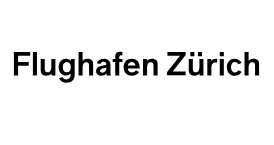Hospital acquired infections are a major problem in medical care settings, resulting in prolonged hospital stays, increased treatment costs and in excess deaths. For a long time, HAI were deemed inevitable but nowadays, there is strong evidence that HAI are preventable by complying to hygienic standards. One crucial element to combat the endemic of healthcare-associated infections is being able to trace and track the transmission pathways of pathogens to develop effective interventions.
There is a lack of rapid tools to understand and monitor the spread of pathogens. Building on our previous work on DNA tracing technologies, we aim to develop tools and procedures to model and monitor the spread of pathogens without directly employing and measuring pathogens.
Project backgroundThe goal of this project is to continue the development of synthetic surrogates of common pathogens with comparable physicochemical properties, especially susceptibility towards alcohol disinfection, stability upon desiccation and the ability to be transferred from one surface to another by touch. The use of DNA as a reporter molecule shall allow the use of the ultra-sensitive detection method of quantitative Polymerase Chain Reaction (qPCR). This method of detection will enable us to not only monitor the spread, but to additionally perform validations of hygiene protocols and other means of preventive measures.
We have set-up collaborations with major European hospitals to be able to test the synthetic surrogates developed in this project in real world scenarios.
Job description - Formulating novel pathogen surrogates
- Comparing the novel surrogate stability and disinfectant susceptibility with real pathogens
- Discussing surrogate application and testing scenarios with medical professionals
- Collaborating with medical professionals in exposure scenario testing
- Develop new understandings on how pathogens spread and act
The tasks include wet-lab based experimentation, project management and teaching duties.
Position details: - Start date: Jan. 1st 2026 or by agreement
- Funding: Fully funded PhD position (ca. 4 years, final admission to Doctoral Program after successful Aptitude Colloquium after 1.5 years, annual contract extensions)
ProfileYou meet the requirements for a doctoral program at ETH Zurich and have an excellent Master's or diploma in chemical engineering, chemistry, interdisciplinary sciences, biochemistry, biomedicine or a related field. Aside of hiring direct university graduates, we also encourage candidates with up to 3 years work experience in industry to apply.
In any case, you already have significant experience working experimentally in a wet-lab, preferably in organic chemistry, biochemistry and/or nucleic acid technologies. You are highly motivated to learn and apply new product design and experimental techniques and collaborating with scientists from other fields (biochemistry, hygiene and medicine). The ability to work independently and excellent communication and writing skills in English complete your profile.
We offerWe offer a full-time position for the duration of your doctoral studies, starting upon agreement. We are providing a supportive environment that fosters professional and personal growth . You will join a dynamic, motivated and interdisciplinary team of researchers with expertise in chemistry, chemical engineering, biotechnology, product design and technology transfer, working collaboratively with research and industry partners. You will work in an inspiring, collaborative environment to address critical medical challenges. It includes opportunities to engage in group discussions and collaborative efforts in understanding how people from various backgrounds imagine the invisible world of pathogens.
Our research group has an interdisciplinary, product design, technology transfer and entrepreneurial spirit. We have already commercialized many technologies and spun out several companies, in the medical, diagnostic and other industries.
The PhD position provides access to state-of-the-art experimental opportunities enabling impactful research. The position supports the development of critical thinking, data analysis, problem-solving, and project management skills while contributing to the broader academic community through publications in peer reviewed journals.
> Working, teaching and research at ETH Zurich
We value diversity and sustainability In line with our values , ETH Zurich encourages an inclusive culture. We promote equality of opportunity, value diversity and nurture a working and learning environment in which the rights and dignity of all our staff and students are respected. Visit our Equal Opportunities and Diversity website to find out how we ensure a fair and open environment that allows everyone to grow and flourish. Sustainability is a core value for us - we are consistently working towards a climate-neutral future .



